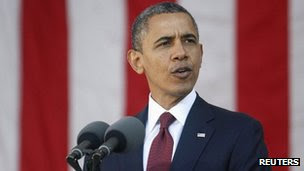Xi will have to address a slowing of economic growth that threatens party's claim to prosperity [Reuters]
China's new Politburo standing committee, from left, Xi Jinping, Li Keqiang, Zhang Dejiang, Yu Zhengsheng, Liu Yunshan, Wang Qishan and Zhang Gaoli. Photo: Reuters
Ruling Communist Party unveils new seven-member Politburo Standing Committee that will govern nation for next decade.
State media says Xi Jinping is to take the reins of China's all-powerful Communist Party in a leadership transition that will put him in charge of the world's number-two economy for the next decade.
Xi, the current vice president and successor to President Hu Jintao, assumes power at an uncertain time with the party facing urgent calls to clean its ranks of corruption and overhaul its economic model as growth stutters.
His long-expected ascension as head of the ruling party took place at 0400 GMT along with the unveiling of a new Politburo Standing Committee, the nation's top decision-making body.
According to tradition, the members marched out before the media in a pecking order agreed after years of factional bargaining, a process which intensified in the months leading up to the five-yearly reshuffle.
| In-depth coverage of China's Communist Party congress |
The standing committee, which had nine members under Hu has been slimmed to seven and includes Vice Premier Li Keqiang, which would set him on the path to be be appointed premier from next March.
Other members include Zhang Dejiang, Yu Zhengsheng, Liu Yunshan, Wang Qishan and Zhang Gaoli.
They will be tasked with addressing a rare deceleration of economic growth that threatens the party's key claim to legitimacy - continually improving the livelihoods of the country's 1.3 billion people.
China also bubbles with localised unrest often sparked by public rage at corruption, government abuses, and the myriad manifestations of anger among the millions left out of the country's economic boom.
The communists have a monopoly on political power in China and state appointments are decided within the party.
The process began with behind-the-scenes horse-trading and political deals.
It was essentially finalised on Wednesday when the party ended a week-long congress by announcing a new Central Committee of 205 people.
On Thursday, the Central Committee approved the higher leadership bodies, including the elite Politburo Standing Committee.
Factional politics
Observers believe two main factions have been jockeying for power, one centred largely on proteges of former president Jiang Zemin and another linked to allies of Hu.
Xi is considered a consensus figure who leans toward Jiang, while Li has long been seen as a Hu protege.
Analysts say that despite rivalries between the two camps which are largely divided on patronage lines, they broadly agree China must realign its economy away from a dependence on exports, while maintaining a firm hand on dissent.
The government has ramped up security in Beijing and on the nation's popular social media sites to prevent any criticism during the gathering.
The run-up to this year's congress was unsettled by events surrounding Bo Xilai, a political star seen as a candidate for a top post until a scandal in which his wife was convicted of murdering a British businessman.
The sensational affair torpedoed Bo's political career, he will face trial for charges of corruption and abuse of power, and added to the intrigue in the run-up to the transition.
Agencies
Newscribe : get free news in real time


